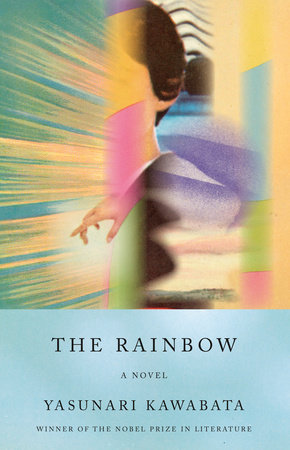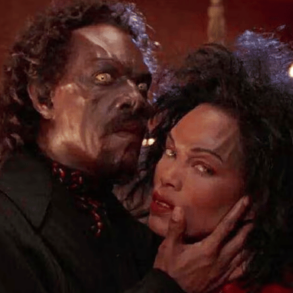
The following is a story from Yasunari Kawabata’s The Rainbow. Kawabata (1899 – 1972) became the first Japanese writer to receive the Nobel Prize for Literature in 1968. His short story “The Izu Dancer,” first published in 1925, appeared in The Atlantic Monthly in 1955. Kawabata’s novels include Snow Country, Thousand Cranes, The Sound of the Mountain, The Master of Go, and Beauty and Sadness. He served as the chairman of the PEN Club of Japan for several years.
1.
Mizuhara decided to take his daughters to Kyōto to see the cherry blossoms.
A client who had settled down in the city after losing his home during the war had requested his services to remodel his new house and design a room for the tea ceremony.
“The Miyako Odori, the spring dance festival, is being held again for the first time in seven years, so he suggested I bring you both along to see the flowers,” he told his daughters by way of invitation. “I can take a look at the house while we’re there.”
Hearing this, Momoko exchanged a quick glance with Asako.
Later, when they were alone, she asked her, “Do you think he might have some other reason for inviting us along?
Asako nodded. “Maybe he wants to introduce us to our younger sister?”
“Introduce us? Why do you sound so grateful? I don’t want to meet her.”
“But you’ll come, won’t you?”
“I don’t want to.”
Asako looked at her sister sadly. “It was only Father and me who went to Atami. Are we supposed to visit Kyōto by ourselves too, leaving you behind like an unwanted stepchild? Poor Father!”
“You’re the one who wants to meet her, so you should go. I don’t want to meet her, so there’s no need for me to go. Isn’t that fair?”
“In that case, it should be you who goes. I’ll stay here.”
“Dear me! That would really make Father sad.”
“But if I don’t go, he won’t try to introduce you to her.” “What are you saying? It’s me Father wants her to meet in the first place. After all, you’ve already accepted her as your sister. You even went looking for her. Don’t you think it’s because I don’t want to acknowledge her that he’s trying to introduce us?”
Asako shook her head. “You’re making this all very difficult!”
“It’s a difficult situation.” Momoko laughed.
“Is it because of Mother? Because she was a stepmother to you?” Asako spoke lightly, but the smile faded from Momoko’s face. Nonetheless, she continued in the same tone of voice, “But since Mother passed away, it seems like your relationship with Father has only worsened. It’s almost like you really do believe you’re only a stepdaughter. I can’t understand it. It’s just so heartbreaking.”
“Now aren’t you the one who’s overcomplicating it?” Momoko paused for a moment to regain her composure before addressing her once more. “Asako. I won’t let what you’re saying bother me too much, because you truly do believe your mother was kind to me, even if I was a stepchild, don’t you?”
“Of course.”
“All right. Then I’ll go with you.”
“What a relief !”
“I would hate to seem so stubborn as to grieve a father already mourning the loss of his wife.”
“I’m mourning too.”
“And so am I.”
Asako nodded.
The image of her sister and the Takemiya boy, sitting together in the motorboat as it glided across the surface of Lake Ashi, rose in her mind.
“Maybe Father doesn’t mean to introduce us to her. Maybe he really does just want to take us to see the blossoms. It would seem too sad to go alone.”
“Maybe,” Momoko answered.
The three of them left Tōkyō on the Ginga overnight service at eight thirty in the evening.
As there were so few passengers in the second-class carriages, they took a four-seat compartment for themselves, so that one of them would be able to lie down.
Mizuhara was the first to take the double seat, but he couldn’t fall asleep, and so swapped places with Momoko as the train neared Numazu.
Later, after they passed Shizuoka, she said that she too was unable to sleep, and so swapped places with Asako.
“Father, why don’t you try to get some rest in a sleeper car?” Momoko suggested. “There must be at least one bed free. Why don’t you ask the conductor?”
But for Mizuhara, the opportunity to spend ten hours with his eldest daughter was a rare thing, and one that he didn’t want to let go to waste.
Asako was sound asleep.
“She really does look innocent, sleeping so soundly like that,” Momoko said.
“I don’t think she was able to sleep much when we went to Atami.”
Momoko was silent for a moment. She glanced up toward the luggage rack. “Look how used to traveling we’ve all become, what with such small bags!”
“Indeed. To be able to travel so easily. The world has gone back to normal, hasn’t it?”
“But you’re used to traveling too, Father. Why can’t you sleep?”
“I could, if I felt like it.”
“Then you should get some rest!”
“Don’t you think you should try as well?”
“But if I go, Asako will say I’m acting like a stepchild again.”
“Did she say that?”
“So I told her I wouldn’t be offended if she really did believe Mother hadn’t treated me any differently than her.”
Mizuhara remained silent, his eyes closed.
“We’ve given her a lot to worry about, haven’t we?” Momoko too closed her eyes. “Since Mother passed away, it seems like Asako has taken on all the household responsibilities herself. She’s trying so hard to do well by us.”
“She is, isn’t she?”
“It would be best for her if I left home,” Momoko said. But as though those words had come back to pursue her, she hastened to add, “Wouldn’t it? I understand that only too well.”
“Don’t say such things.” Mizuhara opened his eyes. “She might hear you.”
“She’s sound asleep,” Momoko answered without looking. “It would be best for her to find a husband soon. I wouldn’t want her to repeat my mistakes.” She felt a painful warmth beneath her closed eyelids. “But, Father, could you bear to let her go so easily? It would make you too lonely.”
“I wouldn’t say that.”
“It’s true. I’m sure of it,” Momoko said with a shudder.
She realized with horror that her father was torn between his love for Asako and his love for her. Just as he had been torn between their mothers.
No, she corrected herself. That wasn’t true. His relationship with Asako’s mother had only begun after that with her own had ended. He hadn’t been involved with both women at the same time.
These thoughts, however, weren’t enough to extinguish the strange fire that had been kindled in the bottom of her heart.
She was suddenly terrified, as though she could see the flames from beneath her eyelids.
Was it her fate to be possessed by the love of her mother, who had ended her life so many years before?
Had her love for her father and stepmother, and her love for her father and half sister, reached her through her own jealousy and that of her mother?
She pulled herself away from her father and turned to lean against the window. Mizuhara opened his eyes. Momoko couldn’t help but feel as though he were staring through her.
He soon dozed off, however.
Asako awoke as the train was passing through Maibara.
Being a good riser, she opened her eyes with a snap and broke into a smile.“Oh no! You were already awake! Were you both watching me sleep without getting any rest yourselves?”
“Young girls do like to sleep in late,” Momoko said with a laugh as she looked around.
For the most part, the male passengers seemed to have already refreshed themselves. Momoko too had finished with her makeup.
The water wasn’t running in the lavatory, so Asako merely wiped her face with a cream.
She unfastened a button of her blouse and washed the base of her neck. Momoko kept watch, worried that someone might try to steal a furtive glance at her younger sister.
“Turn around for a moment,” she urged before fixing her hair for her.
“It’s Lake Biwa. Look at the morning mist!” Asako stared out over the water.
“You know it will be a sunny day when the morning is as cloudy as this,” Momoko said.
“But there won’t be any rainbows with these clouds,” Asako sighed.
“Rainbows? Ah, are you thinking about the one you saw at the end of last year, on your way back from Kyōto?”
“Yes. The gentleman on the train said we might see more rainbows appear over Lake Biwa when traveling along the Tōkaidō.”
“Oh? The man who won your admiration for looking after his baby so well all by himself?”
“Yes. He said when the fields along the banks of the lake are flowering with rapeseed and milk vetch in spring, seeing a rainbow is happiness itself.”
Mizuhara too gazed out the window.
They could see Hikone Castle. Below it stood a grove of flowering cherry trees.
As the train entered Yamashina, the cherry blossoms became more numerous. At last, they had arrived at flowery Kyōto.
The streets of the old capital were lined with red lanterns for the Miyako Odori, and the sides of the streetcars were emblazoned with large notices for the gubernatorial election.
They went to an inn near Sanjō and took to their beds after breakfast to get some rest.
Asako awoke to find that their father had gone out. She spotted a note left next to her pillow.
I didn’t want to wake you; you were both sleeping so well. I’ve gone to the Daitokuji Temple. I’ll be back before evening. Why don’t you both go see the Miyako Odori?
To her surprise, her father had left two tickets to the theater.
2.
As soon as Mizuhara arrived at the entrance to the Jukōin, a subtemple of the Daitokuji, two black dogs ran out toward him. The animals were too large to be indoor dogs. They were almost identical, standing at attention beside one another as he stared down at them. They didn’t bark.
Mizuhara found the corners of his lips rising in a faint smile.
“Oh my, Mr. Mizuhara! It’s been so long!” exclaimed an elderly woman, the wife of the preceptor. “What a pleasant surprise!”
“Apologies for my long absence,” he said. “What interesting dogs. They came out to greet me, and now they seem to be standing like a pair of obedient novices. What breed are they?”
“I wouldn’t know,” the woman replied absently. “I’m sure they’re nothing special.”
The woman hadn’t changed at all, Mizuhara thought. She led him to a room inside, knelt to greet him formally, and rose back to her feet. “I’m sorry we can’t offer you anything to eat. At least let me bring some flowers.” With those words, she brought an arrangement of three large white camellias set in a simple bamboo vase.
Mizuhara was struck by their purity. “One of them looks like a double flower.”
The woman set the vase down on the corner of a small table.
“Have those large camellias in front of the abbot’s house bloomed yet? I suppose they’ve probably already wilted,” Mizuhara remarked.
In his mind’s eye, the camellias, along with the garden and Mount Hiei behind it, floated up before him.
“I’m sure they still have plenty of flowers. Camellias are long-lived,” the woman replied.
Mizuhara glanced idly at a solitary flower in front of him. “What variety is that?”
“I wonder. A fritillary, perhaps?”
“A fritillary? How do you write that?”
“With the characters for double and yam, I think? Perhaps it’s a potato that won’t stop growing?” The woman all but brushed the question aside.
Mizuhara realized that he had broken out into another smile.
“A double yam.”
It was green in color and looked like a cross between a lily of the valley and a bellflower.
“Are you alone this time, Mr. Mizuhara?” the woman asked.
Only then did he realize that she hadn’t heard of his wife’s passing.
“Actually . . .” he began uncertainly. “I’m hoping to see Kikue.”
“Oh?”
“A woman I came here with once, a long time ago.”
“I see.” The woman nodded.
“She was carrying a small child back then.”
“Yes, yes.”
“We’ve long since parted ways. So I thought it would be best if we could meet at a temple. I’m sorry to bring our worldly affairs into a place like this, though.”
“Is she coming here?”
“Probably. I think so.”
“I see.” The woman didn’t seem to mind. “Shall I wait for her to arrive before bringing tea? Let me call the preceptor. He’ll know we have a guest. I’m sure he’ll be delighted to see you.” With that, she left the room.
When the preceptor entered, he dragged one leg behind him as he walked. He looked to be suffering from partial paralysis.
Mizuhara was startled at the sight of his full head of white hair.
His round face, framed by whiskers and a long beard, bore a healthy complexion. His appearance was radiant. His white bushy eyebrows suggested the image of a Taoist hermit more than it did a Buddhist monk.
His flowing beard was braided like a young girl’s hair. It hung all the way down to his navel and seemed to glow with golden light.
“Impressive!” Mizuhara gestured as though stroking an imaginary beard.
“I learned it from the Ainu,” the preceptor said. “I visited Hokkaidō the year before last, and one of the natives explained that if I tied it like this, it wouldn’t get in the way. He was right. It’s surprisingly comfortable.”
The thick white hair, gathered behind his head in a braid, certainly did call to mind that of an old Ainu man.
“I’ve become a native myself! A native in the heart of Kyōto!” the preceptor laughed. “And I grew tired of going around bald, so as you can see ”
“It looks good on you,” Mizuhara replied.
“I used to shave my head by myself, but ever since I took ill, my hand hasn’t been as steady as it once was. And the barbershop would want fifty whole yen to shave it all off. Money like that is hard to come by for us simple temple folk in this day and age!” The preceptor let out another laugh.
Beneath those thick white eyebrows, the preceptor’s large dark eyes glimmered with youth. Even that shady hue called to mind an Ainu native; but to Mizuhara, it carried a wave of refreshing purity.
“How old are you, if I might ask?”
“Oh, he’s around seventy, I would say,” replied the woman. Mizuhara spoke with the preceptor about their mutual acquaintances in Kyōto, but the old master seemed to have difficulty understanding what he said.
“Are you a little hard of hearing?” Mizuhara asked.
“When was it exactly? I lost my footing on the outdoor passage one day and fell into the garden. I’m sorry to say my ears haven’t been what they once were since. People used to say they could hear a bush warbler singing, but I couldn’t. But then, one morning, I pinched my nose as I washed my face, and lo! I could hear again.”
Mizuhara pricked his ears, hoping to make out the sound of Kikue’s soft footsteps approaching. “I can hear one singing now.”
The song of a bush warbler reached him through the silence.
“Whenever I come to Kyōto, there are always so many flowers. It’s always a relief to come here, to the Daitokuji. There aren’t many cherry trees on the grounds, are there?”
“Cherries would spoil the garden,” the preceptor said. “The petals would scatter all over the place, and the leaves would make a downright mess,” the woman added.
“Cherry blossoms are too gaudy for a temple,” the preceptor continued. “Think of the trouble it would cause if the monks got drunk on all those lively colors!”
The preceptor explained that there was only a single cherry tree at the Daitokuji, the Konoe Cherry, planted by a former head of that noble house long ago.
As he listened, Mizuhara tried to imagine Kikue walking along the stone path beneath the pine trees.
How, he wondered, might she have changed since he had last seen her?
__________________________________
From The Rainbow by Yasunari Kawabata. Translated from the Japanese by Haydn Trowell. English-language translation Copyright © 2023 by Haydn Trowell. Published by arrangement with Vintage, an imprint of The Knopf Doubleday Group, a division of Penguin Random House LLC.
This post was originally published on this site be sure to check out more of their content.








